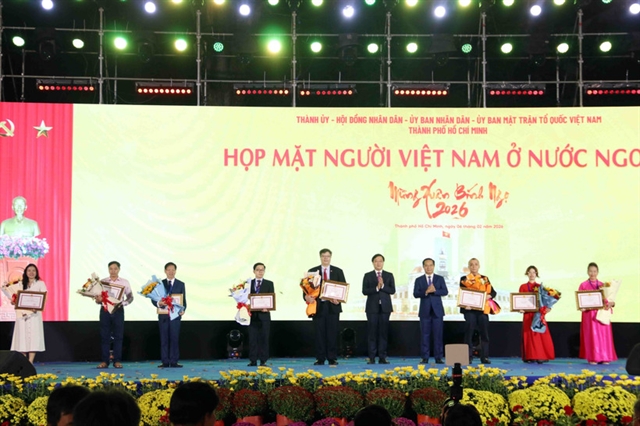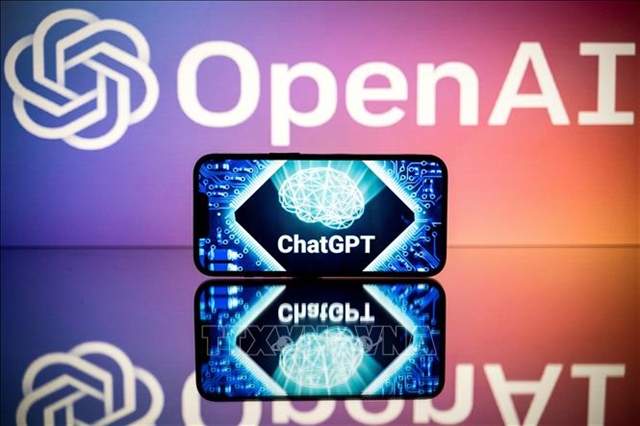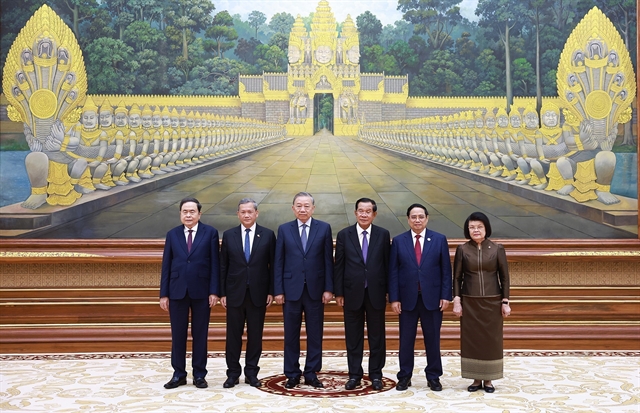 Society
Society

 |
| ChatGPT acquired one million users just five days after launching. Two months later, an estimated 13 million people use ChatGPT daily. — AFP/VNA Photo |
HÀ NỘI — In recent weeks, an application named ChatGPT, an artificial intelligence (AI) based chatbot from OpenAI, has been taking the internet by storm.
Many people have shared their positive experiences using ChatGPT for conversations, research, writing articles, poetry, or even seeking personal advice.
The technology behind ChatGPT has brought many interesting benefits, but experts have warned that AI is not always right, and information might sometimes be incorrect.
Fake ChatGPT apps
Curious about ChatGPT, a student named Nguyễn Hoài Bảo downloaded an app with a similar name on the App Store. However, after installation, the app asked him to pay for registration.
Many counterfeit apps with the same logos as the OpenAI project and the ChatGPT brand have been popping up lately, garnering millions of downloads. However, ChatGPT currently does not have an official mobile app, and the service is only available on the ChatGPT website.
ChatGPT is a computerised system using AI technology to answer users' questions in many languages. The system can even generate sophisticated documents similar to those written by humans from just simple keywords.
However, experts recommend that people need background knowledge of technologies to use ChatGPT and OpenAI correctly and safely.
ChatGPT has been hailed as an evolutionary step for online search engines, said Nguyễn Thế Trung, CEO of DTT Technologies.
According to Trung, as ChatGPT can answer questions in a human-like manner, that means the AI can understand the context of the questions and return comprehensible answers.
However, one important detail that Trung noted is that ChatGPT cannot make counterarguments for incorrect information or fake news. The chatbot itself admits it can only answer from the database it has learned from, and these answers might not always be correct.
The AI application recommends users fact-check the information with credible sources before using the answers it has given.
For example, in a comedic entry on Facebook, a user asked ChatGPT to write an article about the literature work Tắt đèn (When the lights are out) by famous writer Ngô Tất Tố.
The chatbot returned a piece that incorrectly labelled Ngô Tất Tố as an environmentalist, and Tắt đèn, a fictional novel about colonialism in the 20th century, as Ngô Tất Tố's non-fiction scientific work.
Tread lightly
Nowadays, technologies such as Machine Learning and Big Data are helping AI become smarter. As its answers depend on the database ChatGPT is given, the more the database is used, the more accurate the answer of ChatGPT will become.
But even its creator, Sam Altman, the founder of OpenAI, advises users to tread lightly in utilising artificial intelligence.
Altman said that when first-time users chat with ChatGPT, the chatbot's effects are amazing.
But eventually, after 10 or 100 answers, sometimes the chatbot returns a wrong answer. As the AI depends on its original database, should the information in the database is wrong, the answer will be wrong as well.
ChatGPT acquired one million users just five days after launching. Two months later, an estimated 13 million people use ChatGPT daily.
On February 2, ChatGPT announced a paid version, where users pay US$20 monthly for the AI's services.
The free version is available for everyone through OpenAI's website. However, as the service is not yet available in Việt Nam, users must have a phone number and an IP address from countries where ChatGPT is available.
This has led to many people registering and selling ChatGPT accounts for profit despite experts' warning of fraudulent acts such as personal data theft, phishing and swindling. — VNS




